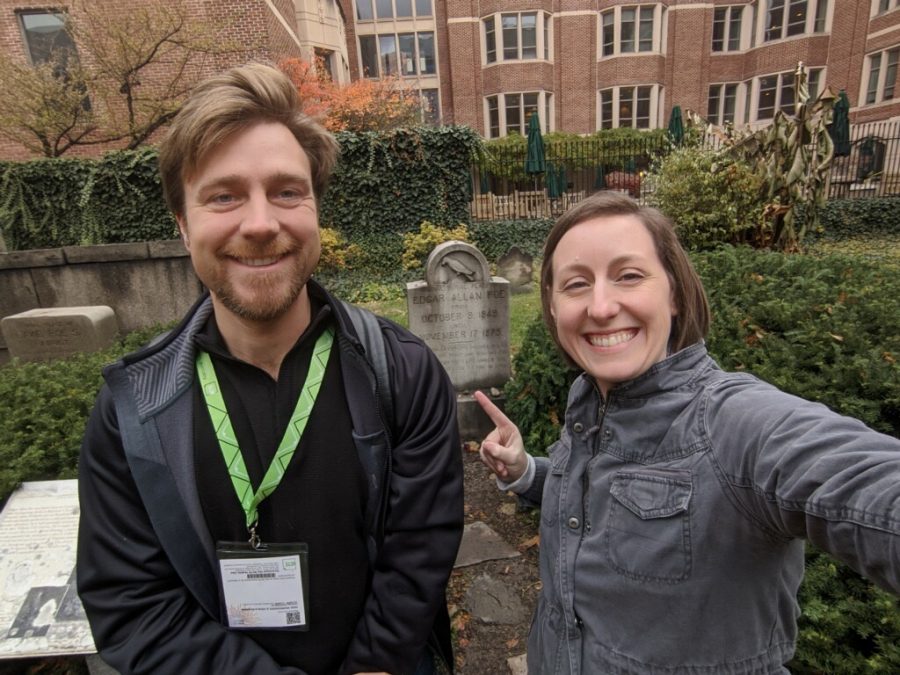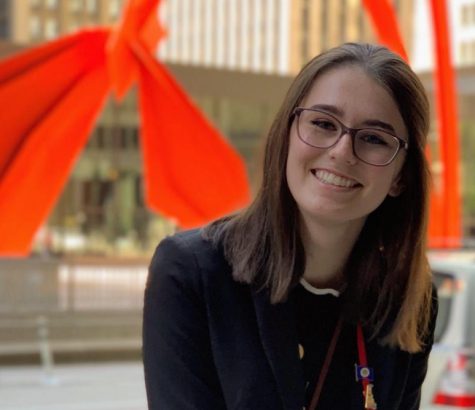The secret life of Mr. Stensrud, Language Arts
Mr. Stensrud recently attended the National Council of Teachers of English conference in Baltimore, MD where he had the chance to visit the grave of Edgar Allan Poe. Here he is pictured with Ms. Nelson at Poe’s grave.
November 26, 2019
Many students at New Prague High School have had Mr. Stensrud as a teacher at least once. Maybe you know him from honors US literature or speech, but what many don’t know is that Stensrud is a writer as well. He doesn’t just write scathing literary articles about “Walden,” no, he writes novels!
When asked why he started writing, Stensrud spoke about his past: “I always enjoyed storytelling. . . but I didn’t do well with papers I was writing. I’d actually blame the teachers.” He was “fearful that [his] voice didn’t matter, that [his] stories didn’t matter.” Because of this, he didn’t begin to truly write until his masters of education classes.
He didn’t see himself well-represented in literature, so he began with his first novel: Running Towards Daylight. This novel was written as a response to the Anoka County suicides about six or seven years ago when LGBTQ+ kids were taking their lives due to the incessant bullying, which is still happening. Running Towards Daylight deals with football and masculinity and what it means to be gay.
The overarching question throughout this novel is “What are people willing to give up to be different? What part of themselves are they willing to deny?” Originally, the novel was about suicide, a more direct response to the horrors happening in Anoka County, but Stensrud didn’t think that was the story people need to hear. Though it no longer covers this topic, Stensrud says, “The suicide chapter was beautiful; I still go back to it and cry.”
Stensrud is what the writing community calls a pantser; he flies by the seat of his pants, no outline in sight. This may come as a shock to his students because, as a teacher, he sure does love to make students write outlines.
Throughout the school year, Stensrud does little writing. He writes a chapter then doesn’t go back to it for a week, which he says “takes him out of the story.”
After a brief talk on his process, he focused on advice for young writers. His main piece of advice is this: “You need to write the story only you can tell.” For young writers out there, heed this advice. Use your voice to tell the stories only you can tell. It’s going to be a commitment, but he says, “the things worth talking about and thinking about should take time.”
At the end of the interview, Stensrud lefts students with one piece of advice. “We all can tell stories, you just need to find the confidence within yourself to explore that.”



Nicole Adams • Dec 4, 2019 at 12:09 pm
Thanks for covering this story Ava! I learned a little about Mr. Stensrud’s hidden talents. Now I need to get a copy of his novel!